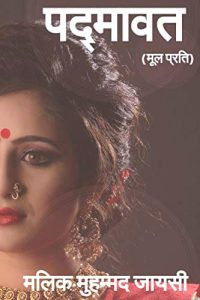Padmavati | Malik Muhammad Jayasi | A Review
Padmavati’ by Malik Muhammad Jayasi-A Review
Introduction:
‘Padmavati,’ written by Malik Muhammad Jayasi in 1540, is a legendary poem that has captivated generations with its intricate narrative, vivid imagery, and poetic prowess. The epic tale has stood the test of time and continues to be a source of inspiration for artists, scholars, and enthusiasts alike. This review aims to delve into the various aspects of the poem, including its plot, characters, themes, and its enduring cultural significance.
Plot and Narrative:
The heart of ‘Padmavati’ revolves around the love story of Raja Ratansen of Chittor and Padmavati, the queen of the island kingdom of Simhal. The narrative takes the readers on a journey through the realms of passion, intrigue, and valor. The poet’s storytelling skills are exemplary as he seamlessly weaves together multiple subplots, giving depth to the central romance while maintaining a gripping pace.
Characters:
The characters in ‘Padmavati’ are multidimensional and exhibit a wide range of emotions. Raja Ratansen, a valiant king, exemplifies honor and chivalry. Padmavati, the epitome of beauty and intelligence, portrays a strong-willed and determined woman who takes her destiny into her own hands. The antagonist, Alauddin Khilji, is depicted as a ruthless and ambitious ruler driven by desire and power. These characters are not only memorable but also serve as conduits for exploring themes of love, sacrifice, loyalty, and the clash of civilizations.
Themes:
Love and Sacrifice: At its core, ‘Padmavati’ explores the theme of love and sacrifice. The unwavering love between Padmavati and Ratansen transcends societal norms and personal ambitions. The selfless sacrifice of Padmavati and the valorous stand of the Rajputs against Khilji’s invasion underscore the depth of their devotion.
Power and Ambition: The poem also delves into the theme of power and ambition, particularly through the character of Alauddin Khilji. His insatiable desire for Padmavati and his lust for power reveal the destructive nature of unchecked ambition.
Cultural Clash: ‘Padmavati’ provides a lens into the cultural clash between the Rajput ethos and the invading forces of Khilji. The poem portrays the Rajputs’ unwavering commitment to their principles, which clash with Khilji’s oppressive and expansionist designs.
Feminine Strength: Padmavati’s character exemplifies feminine strength and agency. She is not a passive victim but an active participant in shaping her destiny, choosing to make the ultimate sacrifice for her honor and the honor of her people.
Cultural Significance:
‘Padmavati’ holds immense cultural significance in Indian literature and folklore. It has inspired countless adaptations, including plays, films, and artworks. The poem’s portrayal of valor, love, and sacrifice resonates deeply with Indian sensibilities, and its themes have found a place in discussions about gender, honor, and history. However, it’s essential to acknowledge that the poem also reflects the values and perspectives of the time in which it was written, and modern interpretations must consider its historical context.
Conclusion:
In conclusion, ‘Padmavati’ by Malik Muhammad Jayasi is a masterpiece that continues to enchant readers with its timeless tale of love, sacrifice, and valor. Through its intricate narrative, well-developed characters, and exploration of complex themes, the poem remains a cultural touchstone that reflects both the historical context of its creation and the enduring aspects of human emotions and relationships. Its impact on Indian literature and its ability to resonate across generations attest to its significance as a literary gem. 0 0 0.
Read More: The Satanic Verses by Salman Rushdie-A Review
N. B. The article originally belongs to the book ‘The Reviews of Epic Literature Around the World Vol-I‘ by Menonim Menonimus.








